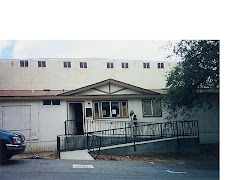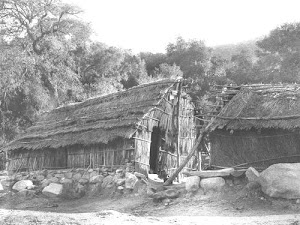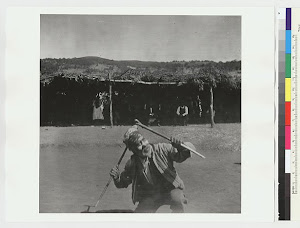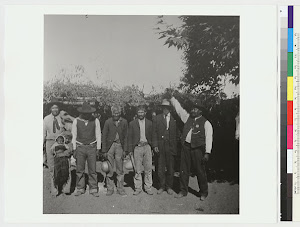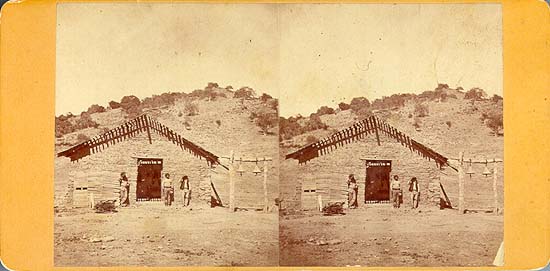http://dtvtransition.org/
On February 17, 2009 Television Will EvolveIn
222 days, 15 hours, 52 minutes, 46 secondsthe era of analog broadcast television in the United States will end as the nation's full power* television stations complete their transition to an all-digital system. While this change will mark the end of the traditional analog method of broadcasting over-the-air television, it won’t signal the end of free broadcast television, and your favorite broadcast programs and local television stations will still be available.If you currently receive analog television over the air or via an antenna, you’ll need to take action to continue watching your favorite stations. TVs accessing "pay" television service such as cable or satellite aren't likely to be affected by the switch.
What, why & how?
Information and resources on this site will help ensure that you’re prepared for the digital TV transition and that you’ll continue to receive free broadcast television in the digital age.Learn How Now »*Many low-power TV and TV translator stations may remain in analog after February 17, 2009. For easiest navigation between these channels and full power digital channels using analog TV sets consumers may want to use converter boxes with “analog pass-through” capability. Click here to learn more.
For the digital box coupon
http://dtvtransition.org/index.php?option=com_content&task=view&id=31&Itemid=44
Learn more about the DTV Converter Box and the coupon program
A digital-to-analog converter box receives digital over-the-air signals from your antenna, converts them to analog and sends the signal to your existing analog television set. These boxes, which are expected to cost between $50 - 70 will be available for purchase in 2008. Beginning on January 1, 2008, U.S. households can request up to two coupons valued at $40 each. Each coupon can go toward the purchase of a single set-top converter box that will allow you to continue watching FREE over-the-air television on an analog set. Click here to learn how to set-up your converter box.For more information about the converter box program visit the NTIA’s official site, and click here to see a list of coupon-eligible converter boxes.
Thursday, July 10, 2008
ARE U STILL USING AN ANTENNA?
Posted by
Karen Vigneault Librarian
at
9:09 AM
0
comments
![]()
Wednesday, July 9, 2008
Grand Opening & volunteer help needed
Howka tribal members, I am almost finished with getting our future library organized. We are planning on an August grand opening. We will need volunteers to help the library stay open . The tribe received a grant , but the grant only covered expenses fo buying new books and I saved half of the grant so as to pay a tribal member to work in the library. In order for us to keep the library open when someone isn't working in there is to have tribal members volunteer to sit in the library so as tribal members can either just sit and read in the library, or so they can check out books. The books can only be checked out by tribal members. The library will have monthly programs promoting literacy, monthly projects working with the tribe's youth program as well as projects to help preserve our tribal culture & history. If a tribal member is interested in becoming a librarian I would love to talk to them as there are only about 3 of us california Indians that have actually gotten their degrees in library studies and I think it would be fantastic if more than one came from our reservation.I am also hoping to promote writing amongst our tribal peoples as there are few books written by us that are Ipai or Tipai (Kumeyaay). If you have any comments please click the comment section below the posting. if anyone would like to reach me personally my email is kumeyaayindian@hotmail.com .
Karen Vigneault (Santa Ysabel tribal member)
MLIS, BS
Posted by
Karen Vigneault Librarian
at
10:43 AM
0
comments
![]()
Tuesday, June 3, 2008
Native American Historical Documents
The website below has links to historical Native American speeches and documents.
Native American Historical Documents http://www.historicaldocuments.com/NativeAmericanDocuments.htm
Native American Historical DocumentsIndian Citizenship Act of 1924 King Ferdinand's Letter to the Taino/Arawak Indians (1492)
A Spanish Friar Indicts the Conquistadors for the Massacre of Indians (1542)
The Iroquois Constitution (1600's)
Father Andrew White's First Impressions of Maryland & Native Inhabitants (1634)
Thomas Morton, Description of the Indians in New England (1637)
Dutch Minister Describes the Iroquois (1644)
The First Thanksgiving Proclamation (1676)
Title 25 (Indians) of the United States States Code (downloadable)
Indian Affairs: Laws & Treaties ( Compiled and Edited by Charles J. Kappler)
Cornell Legal Information Institute Indian Law Resources FindLaw Indian Law Resources Senate Select Committee on Indian Affairs Interior Board of Indian AppealsInterior Solicitors' Opinions (1993-present)Bureau of Indian AffairsFederally Recognized American Indian Tribes and Alaska NativesOffice of American Indian Trust, DOI Office Of Self-Governance, DOIHistorical and Legislative Review of Federal Indian PolicyNative American Documents Project Native American NAGPRA Consultation Database Office of Tribal Justice, DOJ American Indian Reservations and Trust Areas (Department of Commerce database of information on tribal trust areas)American Indian Environmental Office, EPA National Indian Gaming Commission American Indian Tribal Directory Envirotext Search for Basic Indian Treaties and Documents Native Americans and the Environment Web Site Center for World Indigenous Studies National Tribal Judicial Resource Center United States Dept. of Housing & Urban Development CodeTalk Page Lisa Mitten's List of Links to Other Native American Sites Native American Bar Association (NABA) National Native American Law Students Association (NALSA) Proposed Federal Government Report on Status of Native Hawaiians
Posted by
Karen Vigneault Librarian
at
11:00 AM
0
comments
![]()
Ask a Librarian -Free online help for your homework
The following website offers an online service of help from a librarian online. Go to the following link and click on the right, fill in the blanks and a librarian will appear in the chat box available to help you with any questions you might have.
http://www.questionpoint.org/crs/servlet/org.oclc.home.TFSRedirect?virtcategory=12728
Posted by
Karen Vigneault Librarian
at
10:22 AM
0
comments
![]()
Monday, May 12, 2008
NATIVE AMERICAN NATIONS WEBSITES
INFORMATION ON INDIVIDUAL NATIVE NATIONS
http://www.nativeculturelinks.com/nations.html
This section contains links to pages that have either been set up by the nations themselves, or are pages devoted to a particular nation, and are ALPHABETICAL BY TRIBAL NAME. Pages maintained by Indian Nations or individuals are indicated with this symbol:. Pages without this symbol are primarily ABOUT specific nations, but not by them.
Included are both recognized and unrecognized tribes.
Dick Shovel has begun compiling good general historical & cultural overviews of a couple of dozen tribes. Take a look at First Nations Histories - a good source for student papers! Dick also has a listing of tribes, both federally and state recognized, as well as those with no formal governmental recognition at all.
Posted by
Karen Vigneault Librarian
at
8:58 AM
0
comments
![]()
Monday, May 5, 2008
Native American law resource page
Native American law resource page with links to Native American legal organizations, Native American student organizations, Native American arts and culture, Native American government agencies, Native American Education, Native American Tribes, Native American national organizations and institutes, Native American news, Native American research guides, and much more.
http://www.washlaw.edu/doclaw/subject/nativ5m.html
Posted by
Karen Vigneault Librarian
at
9:23 AM
0
comments
![]()
Thursday, May 1, 2008
IN THE LAND OF THE HEAD HUNTERS-EDWARD CURTIS
In 1914, famed photographer Edward S. Curtis (1868-1952) produced a melodramatic, silent film entitled In the Land of the Head Hunters. This was the first feature-length film to exclusively star Native North Americans (eight years before Robert Flaherty’s Nanook of the North). An epic story of love and war set before European contact, it featured non-professional actors from Kwakwaka’wakw (Kwakiutl) communities in British Columbia—a people already famous then for their spectacular visual culture and performances. The film had gala openings in New York and Seattle in December 1914, where it was accompanied by a live orchestral score composed by John J. Braham (1848-1919), best known for his work with Gilbert and Sullivan. Curtis supplied Braham with c.1910 wax-cylinder recordings of Kwakwaka’wakw songs; despite advertising claims, however, little if any of this source material made it into the score. Critics wrote in rapturous terms about the power and beauty of the film, the Seattle Sun calling it a “great production—like a string of carved beads, too rare to be duplicated.” And yet, Head Hunters was a financial failure, quickly overlooked and barely preserved. In 1947, a single copy arrived at the Field Museum after being picked out of a Chicago dumpster; these damaged and incomplete reels were re-edited by Bill Holm and George Quimby and released in 1974 as In the Land of the War Canoes, featuring a new soundtrack recorded by Kwakwaka’wakw consultants at the time. At some point, a few deteriorating clips from another copy found their way to the UCLA Film & Television Archive, and the all-but-forgotten score was filed under another name at the Getty Research Library.
http://www.curtisfilm.rutgers.edu
Posted by
Karen Vigneault Librarian
at
10:14 AM
0
comments
![]()


